|
I N T E R V I E W Paul Turney: Ex-Flight X7 and Sound Archivist by Ian Duggan Paul Turney grew up in Cambridge, New Zealand, and has gone on to become one of the leading archival audio engineers in the UK. In between, he was a keyboard player for Hamilton formed band Flight X7, described by some as New Zealand’s answer to Devo! We talked to Paul about his time in Flight X7, his early life, and the highlights of his career as a sound archivist. HUP: How long were you in Flight X7? Did you appear on any of their recordings, or at any of the larger gigs they played? Turney: [I was] in the band about eight or nine months to my recollection. [Lead singer] Jeff [Clarkson] reckons it was two years, but I don't think that's true. The recordings were very well done before I arrived on the scene. I was in the band when it supported Roxy Music at Sweetwaters [at Ngaruawahia in January 1981]. We were on just before them at dusk. Mike Coreless [of New Music Management] had all our bookings on the circuit sorted and lots of us young bands got a slot on the big stage earlier on. 75000 people attended that festival and I think they were all there for Roxy Music. I remember looking out into a sea of faces from the stage – we were only used to packed pubs and Community Halls like Whangamata in the summer and places like Opotiki pubs, New Plymouth and Rotorua pubs, so it was very interesting to be on a stage that was larger than most of the venues we’d ever played. Our circuit had several well-known bands playing, and we toured around so that about every six or seven weeks we’d be back in the same pub or venue again. I remember Sheerlux and Lip Service, Pop Mechanix and Reel 2 Reel, The Knobz, Auckland Walk, The Crocodiles…. I was called to audition in Auckland. Jeff was the only member who remained to shoulder the debt. The recordings were done before I joined, and Jeff basically put a new band together. Songs like ‘I Lose Control’, ‘Marching with the Zombies’, ‘Don’t get too Close to Me’ and ‘Headlines’ were big tunes. [Guitarist] Paul Jamieson and I were old mates from my Ponsonby days in the late ‘70s when he was in ‘Panic’, so that may have helped in my recruitment. One thing you must remember about Flight X7, we were tight and musical, and would fill town halls and the like wherever we went! We were progressive in those days using loads of keyboards; you know pianos, synthesisers, as well as great guitar lines. Rob Wilson was a fab guitarist, as was bass player John Holland. Alan Johnson was an excellent timekeeper, especially trying to follow the LFO [Low-frequency oscillation] from the synths. No clicks to follow, just vibration. I think they were all from the Hamilton area; I guess I was too! I took the decision to leave Flight X7 when, after the weekly bills were paid and the debts were being serviced, I had $20.00 in my hand that week, the band was paying off previous debts from other tours, tours I hadn’t been on. Flight X7 was badly in debt, and I wanted the band to cut their losses and go to the UK, but various members were against it. There was no cash to speak of to give us a wage. That's the reason I slung my hook and opted for the studio. HUP: What could $20 a week buy you in 1980/1981? Not a lot!! Probably a lot more than it does today… we had accommodation and meals, travel and that sort of thing covered by the band. You played because you loved to play (on stage). It was exciting stuff playing live and I think that’s what puts most bands on the road to start with… I’d been doing demos with WEA before that and it marked a change for me at the time. HUP: Besides playing before Roxy Music, what other highlights or strong memories do you hold from your time in the band? Turney: Just playing most nights on stage I suppose, touring round the country in a crowded van or car with the group. We spent a lot of time travelling to places like Napier and Gisborne; the venues were always packed with people. It was early ‘80s and the bands played their own music and sustained an audience. I met the Perreaux amplifier Company in Napier and started using their products for many years after. There were plenty of girls of course, and friends of Jeff’s who were dotted around the place always came to see us. We would party after the shows or do the loadout and go to the next venue. We had our own sound and lighting technicians who would also travel with us and did a great job of mixing up the sound and producing a great light show. HUP: Was your following around the country pretty consistent, or did you have greater popularity in some centres more than other? Turney: The bigger centres like New Plymouth, Rotorua, Hamilton, Wellington and Napier always produced large numbers of people to the gigs, but it was small in comparison with other parts of the world. I was conscious we could have done a lot better in larger places like London or even Sydney if the band could get out of New Zealand and play there. In Auckland we played at venues like Mainstreet (in Queen Street) and the Mon Desir Hotel in Takapuna. Overall I think it was consistent. The venues were well patronised until the hotel managers decided that they could do away with bands altogether, [and] that was a death knell for the touring bands in just one year. There was a critical mass that began to wane when venues got their own sound systems in. Bands were not employed any more. We were still paying off old debts in a climate of reduced incomes, in debt to sound companies who were undermining our own revenues by selling the same systems we were in hoc to, and equipping the venues with their own systems. An initial investment in their own sound gear could be written off against the tax to pay by the venues, and we’d end up with nowhere to play. The excitement that the bands generated was unmatched by the cheaper alternatives, and slowly but surely venues started dropping off the rota as they in turn went out of business. There were two breweries running most of the circuit: Lion and DB Breweries. HUP: Did you get to put your own stamp on the music, in the way you played? And were there songs among the repertoire that you enjoyed playing more than others? Turney: I wrote at least three of the songs we played regularly; we always started with a big theme track I wrote, and both Jeff and I played the keyboards together on that. It was a suitable way to start the night as players, and it gave the soundman some time to get the mix sounding good without having to try and mix the vocals. The start also served to draw attention to the band without having to announce it. I guess I did get to put my stamp on the sound, I never really thought about it that way. HUP: Was your departure from the band on good terms? Do you still keep in touch with any of the other members? Turney: A departure like that was not easy, and I knew full well it would impact the group, but I had to do something. Jeff and I picked up our friendship again when I went and worked in Wellington. We met up with the late Paul Jamieson down there a few times and I saw a lot of him over the years afterwards. I was really fond of Paul and the connections we made over the years, even recording with him on some tracks in the 1990s. He was a brilliant guy in so many ways, and I was sorry to hear he had died, but wasn’t surprised either. I’m in touch with Alan Johnson (drummer) on Facebook and Jeff and I are in touch through the same social media platform. Look, we were all quite young and some of us were more ambitious than others, and unless this band took a plane to another country and played to bigger audiences, we were only ever going to be a medium fish in a small pond unable to grow our show for a bigger stage. For all of us, not just for me, and in the end I could remove myself emotionally and see that things were unlikely to improve within our current situation. A keyboard player by the name of Troy joined after I left as he was often on stage keeping an eye out for a quite a while. He had a nice CS 40M synthesiser, so I left the Delta strings and the Roland piano with the band knowing there was someone to take my place, and I took consolation from that situation with me. When I met up with Jeff years later in Wellington we discussed my departure again. He knew my point of view. He became very successful with meditation music and that continues to this day. Flight X7 was fun while it lasted. HUP: Were you in other bands, also? You have talked about moving to Wellington to join ‘The Body Electric’, which didn't eventuate - what happened there? Turney: My first band was me and Rikki Morris [of ‘Nobody Else’ fame] and Grant Hobbs and Stephen Parker, who I kept playing with for years. I don't think we had a name. We rehearsed a lot in the Glendowie Primary School hall, which was close to all our folk’s houses. Steve Parker and I drifted off to another outfit on Fanshawe Street where we had a rehearsal space above the bike shop. Suzanne Lee was a good friend of mine from Cambridge and we did some recording at Harlequin Studios on occasions. The scene shifted to an old Convent School in Freemans Bay where we had another rehearsal space provided by the Outreach organisation on Ponsonby Road. Blam Blam Blam also shared a classroom to do their rehearsals in. I did some demo recordings for WEA records through Tim Murdoch who covered the cost of the recordings. I played with Phil Wilson who contacted me when Tim Murdoch died a few weeks ago, and he’s teaching guitar in Auckland today. It had to be said WEA were not interested in taking this venture any further, and when I listen to the demos we were doing, a shabby mix of Mi-Sex and some other Enz-style music, I really didn’t blame him! Noel Lamberton, another Flight X7 drummer, did the drumming on those sessions. I also got an old school friend Peter Urlich to sing one of the tracks I funded myself back then. Then I joined Flight X7. I went to play with the Body Electric who had a hit out with ‘Pulsing’ on Jim Moss’ Jayrem Records and they needed a keyboard player for their gigs. Jimson and Smith came through Gisborne and convinced me to pack it all in and join them. Alan (now Jannson) was one of a trio of people I was with there, plus my girlfriend at the time who had travelled with me from Gisborne. Jimson and I got on okay until I insulted the band’s manager…. I guess I was getting really frustrated that things weren’t moving along, that days turned into weeks and still no rehearsing was underway. I started questioning what I was doing there and rightly took it out on their manager, so I was cut loose soon after and got a small flat in Haitaitai doing nights in Marmalade with Jeff Clarkson helping on his new record. There must have been some truth to that frustration as you'll have noticed Body Electric never really surfaced again. Front man [Garry] Smith, the lovely big fella, was a very nice guy, but I couldn’t work out the dynamic of the outfit at all. I’m sure they saw things in a different way, but we never had that interesting conversation. For me I had left Gisborne, the surf and my friends, for Wellington for nothing. Jeff was recording 'One to One' in Marmalade [Studios in Wellington], so I got involved in the recording of that. [Studio engineer] Ian Morris [a.k.a. Tex Pistol] was at Marmalade as well on occasion; I knew Ian from school of course. Dave Ginnane was there running the main control room and I slipped in with him on sessions. Marmalade was a nice 24 track analogue studio, doing commercials for the radio and TV companies from around the city. Avalon Television Studios was close and I started taking an interest in a box of old quarter inch NAB reels that had been recorded in the Pacific Islands. I set about removing the clicks that were in these masters. There was no CEDAR in those days, only a chinagraph pencil, an editing blade and your trusty reel of splicing tape. Years later, Alastair Riddell and I had a duo formed off Dominion Road called ‘Big Red Car’ and we spent a couple of years playing 3 to 4 nights a week. We were picked up by the Variety Club of NZ in Cambridge and did several Variety Club ‘bashes’ in vintage cars with celebrities, raising money for children. Ian Jeffries, another Cambridge musician, accompanied me on one of those. HUP: What were your timelines for living in the Waikato? It looks like you left Cambridge for Auckland for school fairly young. Did you return to Cambridge afterwards? Turney: I was at Sacred Heart College for five years as a boarder. I returned to Cambridge for a year after Sacred Heart. I went to Cambridge High School that year. HUP: Attending Sacred Heart was obviously an important part of your journey to becoming a musician. I mean, Sacred Heart is pretty legendary for the talent that passed through it: Tim and Neil Finn, Ian and Rikki Morris, Dave Dobbyn, Mike Chunn, etc... Turney: We knew the Finn family from Te Awamutu since as far back as I can remember; our mums and dads were close friends before I was born. I did have some idea of what Sacred Heart was like, hearing about it from my two older brothers, James and Mike. It was daily routine and every second Sunday was a free Sunday, we were picked up and taken out after mass. From Cambridge, the guys who boarded in my year were James Casey and Kevin Uttinger. We stuck together quite a bit, because we knew each other from the Convent School back home. Split Enz was getting a lot of attention at school, and the school music competition held annually was won by founding members of that group years earlier. I thought they were pretty cool! Finn had left university to pursue his music, which at home was discussed as a disappointing option around our table. It was probably true to say my parents could not see anyone ever having a career in music; it wasn’t the done thing in those days. We’d be singing ‘Mr Tambourine Man’ in assembly or Beatles covers before school most days. I do remember that in the school gymnasium. Quentin Gannoway was our principal music teacher and I credit him with getting music running through the veins of the boys. Quentin was a major keyboard talent himself, and long after I left school he’d call me up and borrow the CP 30 for gigs. The school had a main music room with a record player and a piano, and there were smaller music rooms under the classrooms looking out onto the cricket fields. I won the music competition one year with my band of merry misfits where the adjudicator was NZSO’s Gary Brain, a percussionist who wouldn’t award 2nd or 3rd places, announcing I was in a class of my own. Slightly embarrassing that was ‘cause the field was pretty impressive, what with Simon Lynch and other proficient musicians who were expected to walk away with the trophy; Simon, who has gone on to do so well as a guitarist and keyboard player, and a mastering engineer at Stebbings were I met him about a decade ago again. I’d assembled a crew of guys to play the ‘Overture to Tommy’, having borrowed a second-hand Farfisa organ from Lewis Eady on Customs Street and made everyone practise for weeks on end. It was fun. HUP: How did you get your start on synthesizers? Were there bands at the time that inspired you to take them up? Turney: The E St Band’s Roy Bittan, and Little Feat’s Billy Payne, Bowie's keyboardist Roger Powell and Roxy’s Brian Eno were big influencers. The first piano I played was the German grand my parents had in our living room at home, a Gors and Kallmann, that the wonderful late Phil Leishman acquired. My second portable piano was Yamaha CP 30. My first synthesiser was the Yamaha CS 30, which I got new from Atwaters in Auckland. I used that as my main synth with Flight X7 and I used a Roland piano and Korg Delta strings. I also bought a Prophet Pro One and a Yamaha CS 70M later on. I had a Yamaha CP 80 until a couple of months ago. I was fascinated with the CS 30, and the challenge of playing it every night when there were no presets to store your favourite sounds. Every sound had to be created ‘on the fly’ making no two shows the same. Shame they weren’t recorded in hindsight. The sequencer functions were amazing to use. I also used a Roland Space Chorus in my mixer so had some effects on the sound of the keyboards. Eddie Rayner [Space Waltz and Split Enz], another Sacred Heart old boy, definitely influenced me to go the Yamaha way with his playing and control of the instruments. Moog products were very good, but were much too expensive in New Zealand at that time and we never had much money. Products made in Japan always worked out more affordable back then. Now I use a Korg Trinity Pro-X, a Korg T2 and a Hohner melodian. I should’ve gone down the melodian route 30 years ago. HUP: What are some of the most interesting projects you have worked on as an archivist? Turney: Interesting projects as an archivist started with the live recordings at the Barbican Theatre. These were all done live at the Barbican on the South Bank, and they are housed in the Music Preserved catalogue. I did those when I worked at Chop 'em Out, a mastering facility in West London in 1996. Then I won a European contract to work on National Sound Archives at the British Library. For eight years I worked on many obsolete recordings under the late Peter Copeland, and after Peter died I worked with Nigel Bewley. We worked under B.L. Contracts for first public performances and first broadcast performances of many classical music concerts, operas and suchlike from the Royal Opera House, Covent Garden, and the Barbican in London of live recordings from many of the world’s most famous opera houses, from settings on Lake Lucerne, The Royal Opera House, Covent Garden and Glyndebourne Opera. I have had quite a few interesting projects since then as well, with the experience at the British Library remaining a very important one. Other commissions:
HUP: What are your favourite bands currently? Turney: Michael Franti, Katchafire, Ariwo, Thievery Corporation, Afro Celt Sound System, David Bowie, Massive Attack, Nightmares on Wax, Khalid ….. I have a project band (The Human Condition) that I assembled for recording tracks with the intention to put my songs into a physical form for posterity. The project is ongoing. Members as follows [hover over or click photos for captions]: Wanje and I spent a lot of time recording here over the years. Tim used to come over and play the guitar parts after I’d written the songs and put most of the keyboard lines down. Wanje used to live just around the corner and one summer at midnight he arrived at the front door. He’d been cycling past a few times and noticed there were some nice sounds coming from our house when the windows were open in the summer and the music drifted out onto the street. My wife naturally invited him in and we’ve been friends ever since.
3 Comments
14/2/2018 01:28:25 pm
greetings all you beautiful good looking people, br. p aka (paul turney) is a brotha to i.. we've been making it happen from day one. i would say if it wasn't for br. p maybe i wouldn't be where i am in musical right here right now! big oneself br. p a true king.
Reply
Nicqui Redman
10/6/2019 05:48:17 pm
What a lovely story. From Flight X-7 to the big names! I just discovered this interview when I randomly searched Flight X-7 on YouTube, as I do from time to time. I was only 12 years old when I became a big fan of Flight X-7 (well, as big a fan as you can be when you're not old enough to go to pubs!). My brother, 8 years older than me, took me to see them at the Squeeze in Fanshawe Street. He was flatting with a couple of them. I immediately fell in love with Paul Jamieson and planned to marry him one day. He was 22 and had no idea of my plan, of course. I was completely obsessed. I somehow came across a demo tape which I made a copy of (over my Sergeant Peppers tape), it had on it "Work", "I Lose Control" (a slower version than was eventually recorded as a single), "Numbers", "One Of These Years" and "Radio Love". I didn't have "Red Light" on that tape but I must have had it somewhere as I can even remember the words to it now (I'm 52!). That poor tape got played over and over and over again until it was a screwed up mess. I was at the first Sweetwaters (a month before my 13th birthday) and every one after that.
Reply
Leave a Reply. |
Archives
July 2022
Categories |
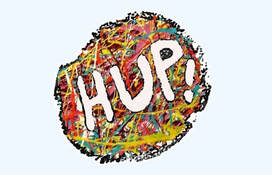
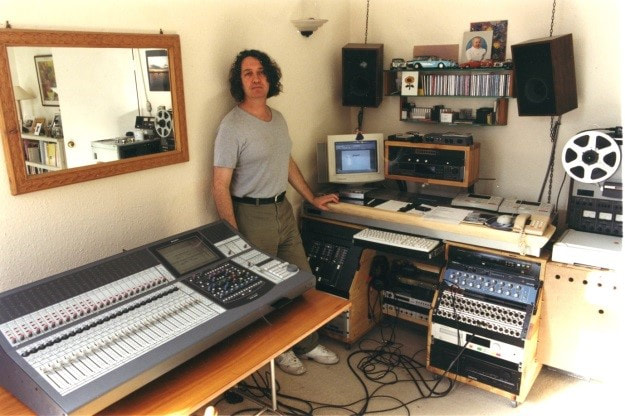
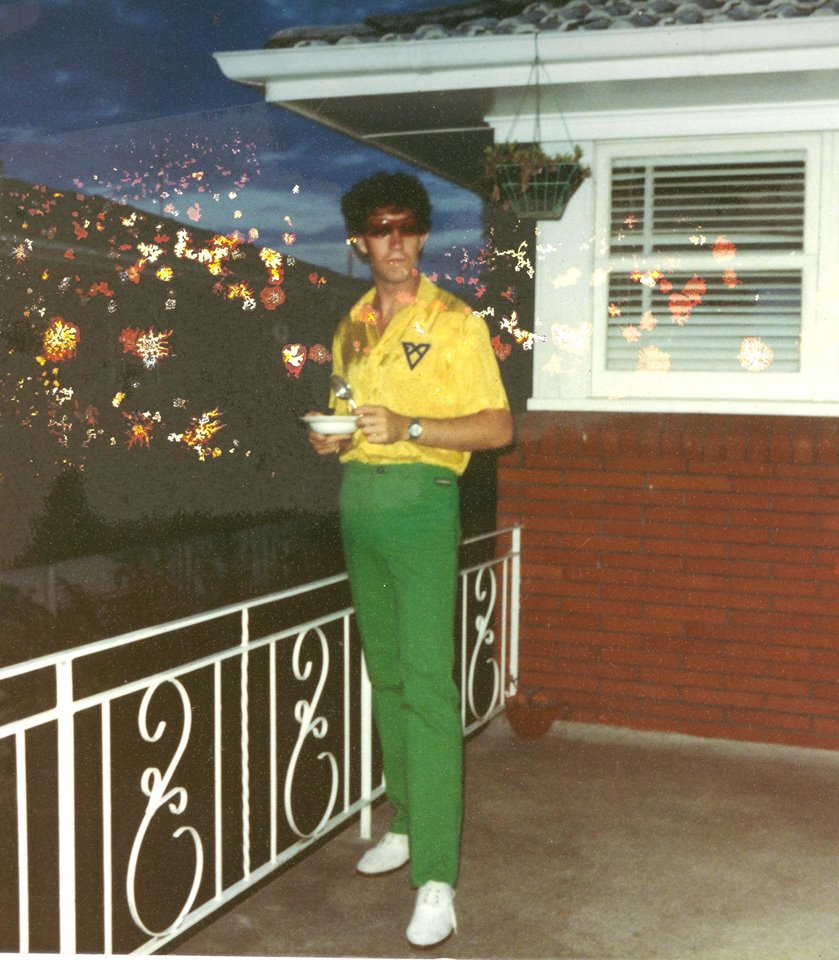
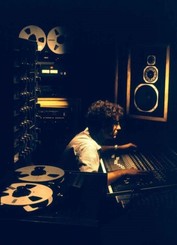
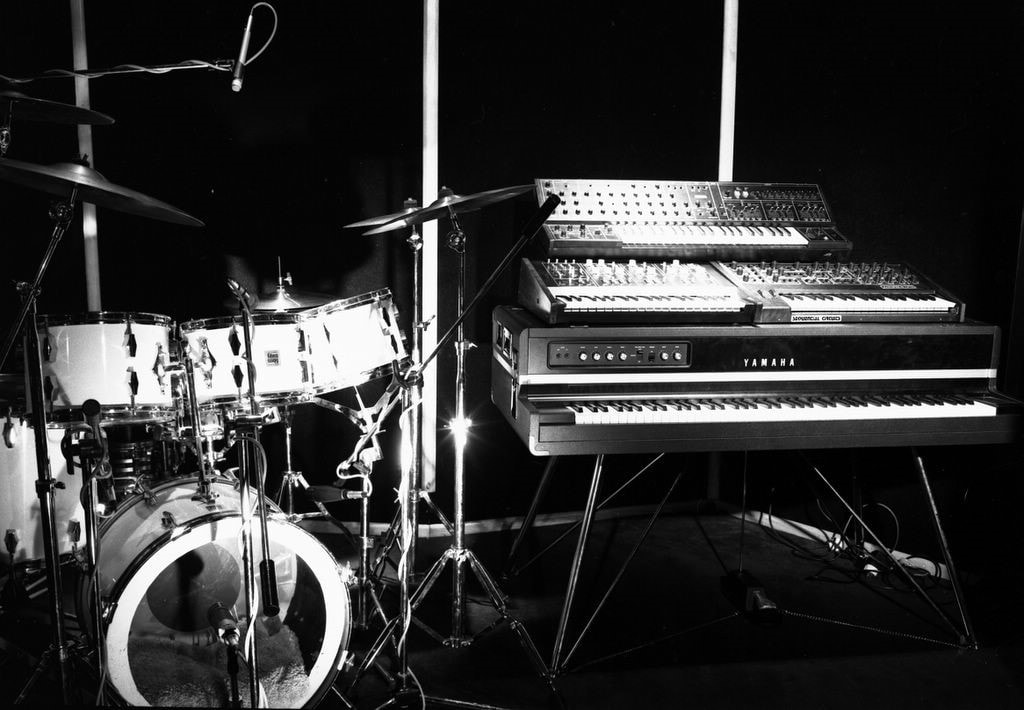
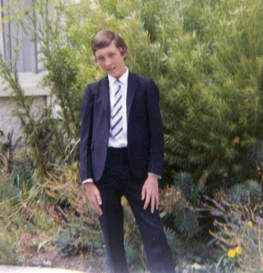
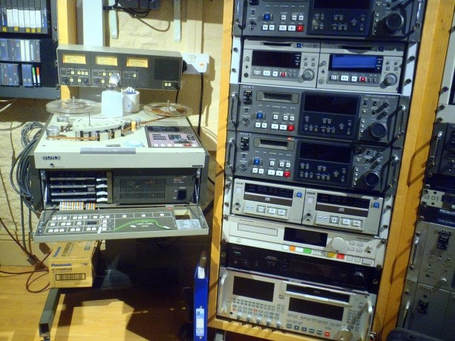
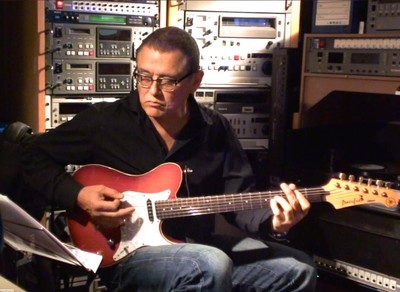
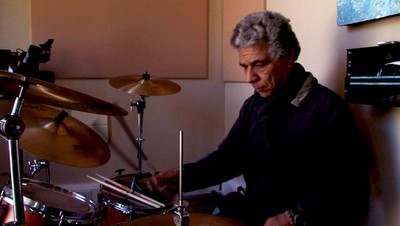
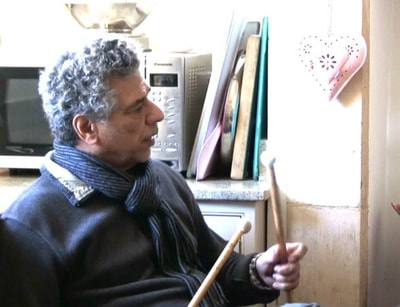
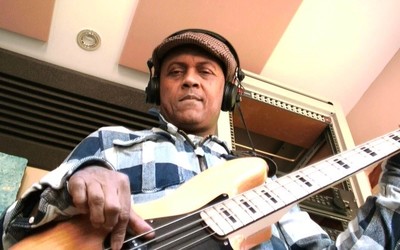
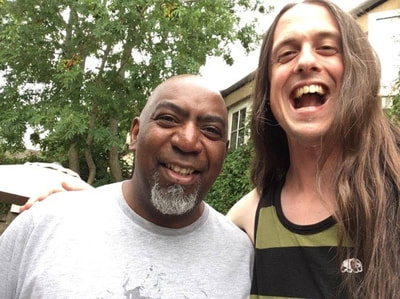
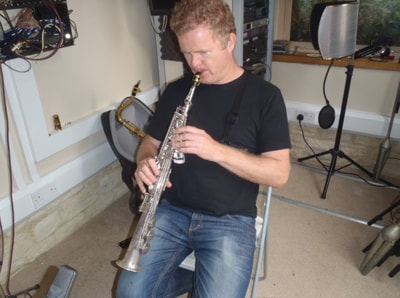
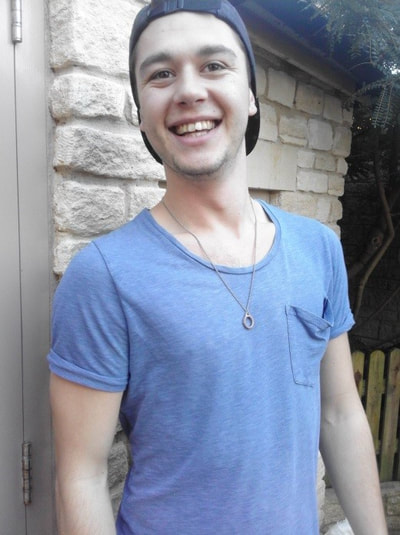
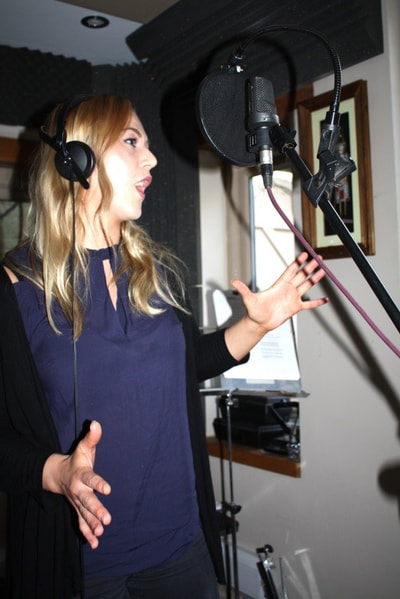
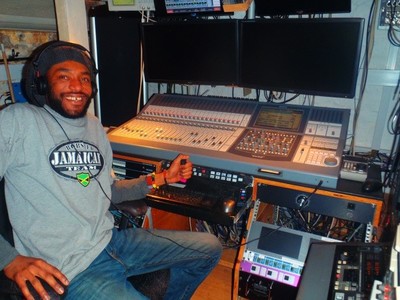

 RSS Feed
RSS Feed
